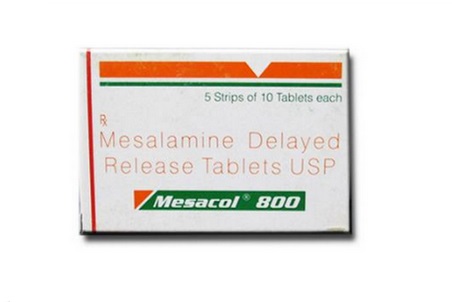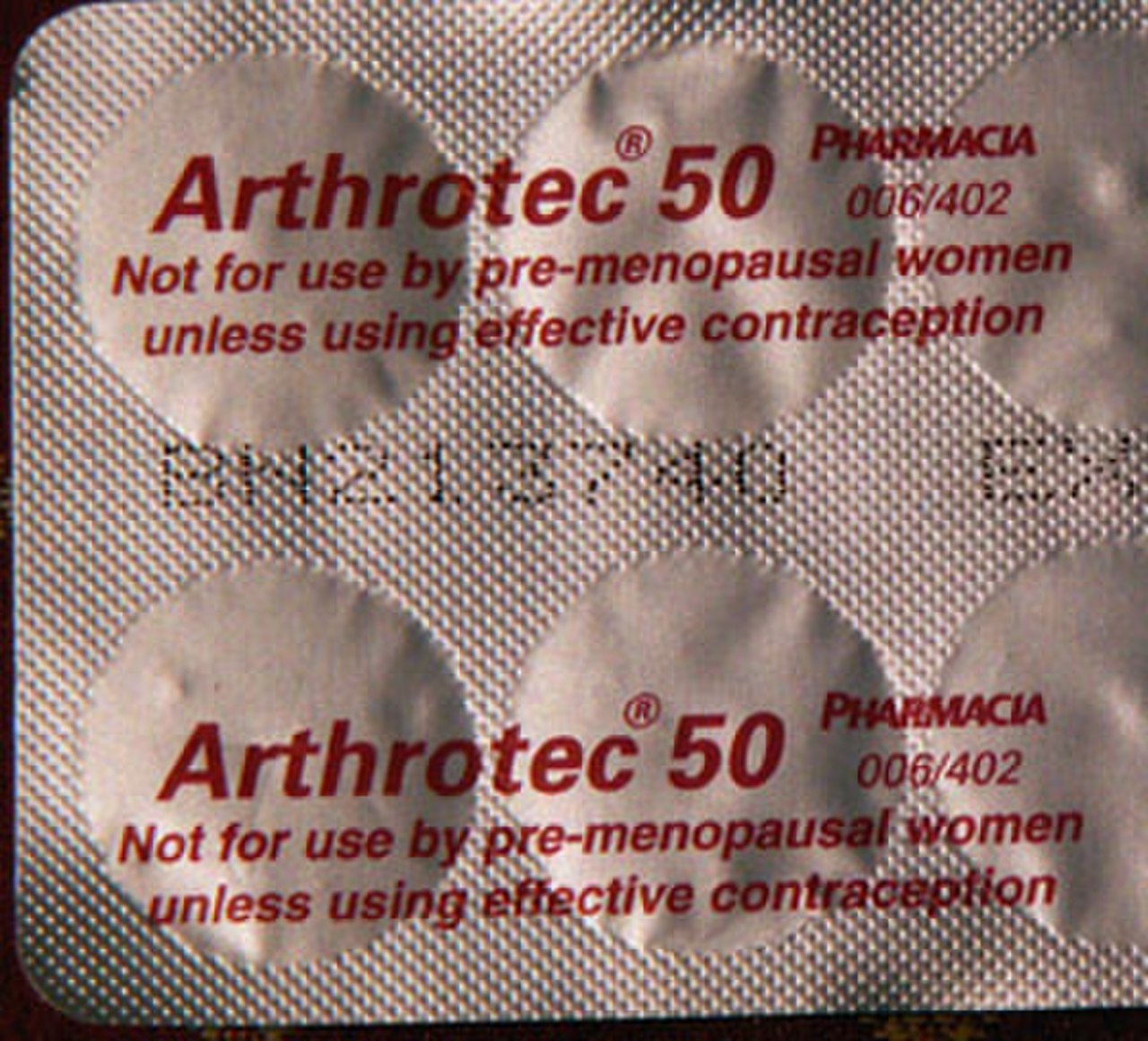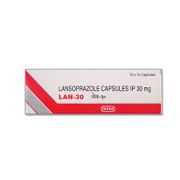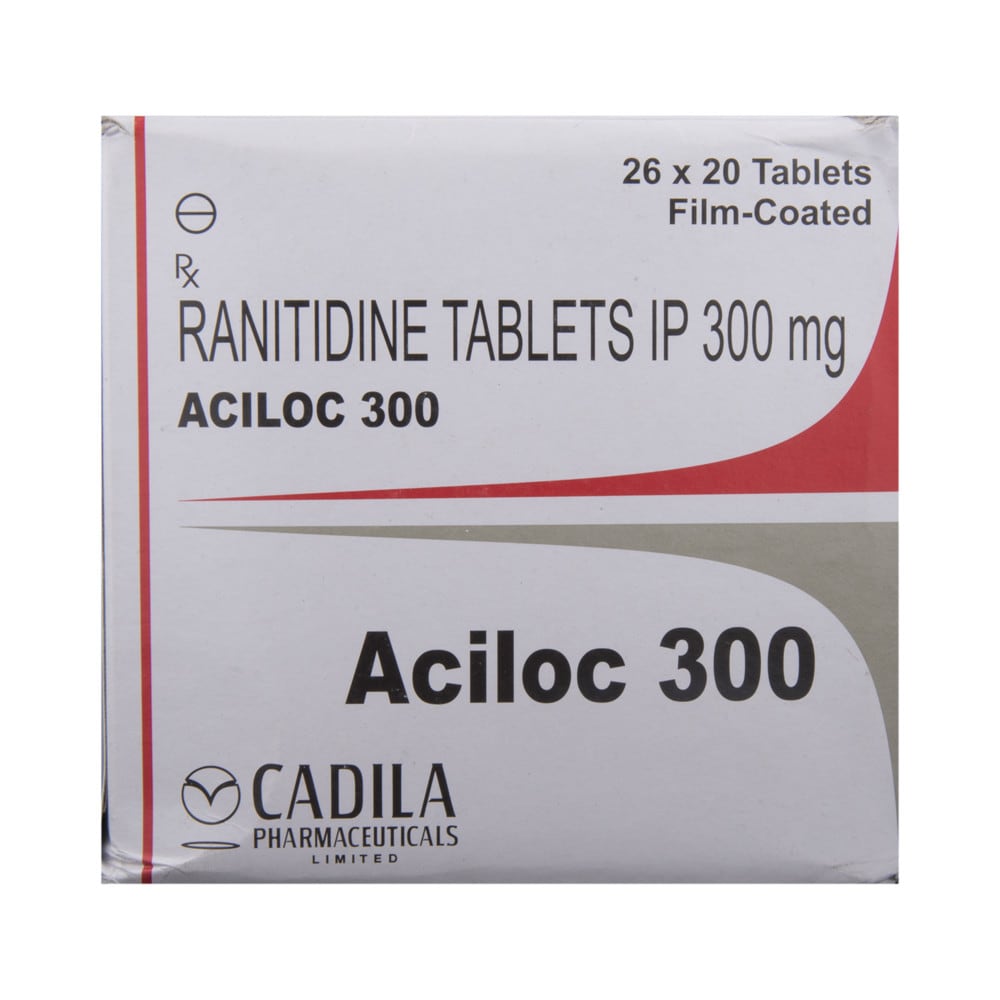Mesacol 800 mg
Mesacol 800 mg, a medication containing the active ingredient Mesalamine, is a significant player in the treatment of inflammatory bowel diseases (IBD), particularly ulcerative colitis. This article provides an in-depth exploration of Mesacol 800 mg, including its mechanism of action, benefits, potential side effects, and frequently asked questions.
Mesacol 800 mg: A Closer Look
Mesacol 800 mg is a tablet formulation that delivers Mesalamine directly to the gastrointestinal tract. Mesalamine, belonging to the aminosalicylate class of drugs, possesses powerful anti-inflammatory properties that make it a valuable tool in managing IBD.
How Does Mesacol 800 mg Work?
Mesacol 800 mg, a medication containing the active ingredient Mesalamine, operates through a multi-faceted mechanism to effectively manage inflammatory bowel diseases (IBD), particularly conditions like ulcerative colitis. Understanding how Mesacol 800 mg works involves delving into its mode of action within the gastrointestinal tract.
The Mechanism of Action:
- Inhibition of Inflammatory Mediators: Mesalamine, the key component of Mesacol 800 mg, is an aminosalicylate compound. It exerts its therapeutic effects by inhibiting the production of various inflammatory mediators, such as prostaglandins and leukotrienes. By doing so, it curbs the inflammatory response that is characteristic of conditions like ulcerative colitis.
- Modulation of Immune Response: Mesalamine works by modulating the immune response in the gastrointestinal tract. It helps regulate the activity of immune cells and cytokines that play a significant role in initiating and perpetuating inflammation.
- Direct Anti-Inflammatory Effects: Mesalamine directly interacts with the inflamed tissues of the digestive tract. It prevents the accumulation of white blood cells in the mucosal lining, which is a common occurrence in inflammatory bowel diseases. By reducing this accumulation, Mesacol 800 mg minimizes tissue damage and inflammation.
- Scavenging Reactive Oxygen Species: Inflammatory processes often generate reactive oxygen species (ROS) that can cause oxidative stress and further tissue damage. Mesacol 800 mg's Mesalamine content has antioxidant properties that help neutralize these harmful ROS, contributing to reduced inflammation and improved tissue healing.
- Promotion of Remission: Mesacol 800 mg doesn't just focus on symptom relief; it also aids in achieving and maintaining remission. By reducing inflammation, it allows the mucosal lining of the gastrointestinal tract to heal, leading to a decrease in symptoms and a longer period of symptom-free living.
Targeted Delivery for Enhanced Efficacy:
One of the noteworthy aspects of Mesacol 800 mg is its targeted delivery. The tablet formulation is designed to release Mesalamine directly in the gastrointestinal tract, ensuring maximum efficacy in the area of concern. This localized action not only enhances the therapeutic effects but also minimizes the risk of systemic side effects that can occur with medications that have a broader distribution in the body.
Key Benefits of Mesacol Medicines
Mesacol medicines, which contain the active ingredient Mesalamine, offer several key benefits for individuals dealing with inflammatory bowel diseases (IBD), particularly conditions like ulcerative colitis. These benefits stem from Mesalamine's unique properties and its targeted action within the gastrointestinal tract. Here are some of the key advantages of Mesacol medicines:
1. Anti-Inflammatory Action:
Mesacol medicines are valued for their potent anti-inflammatory properties. Mesalamine, the active ingredient, inhibits the production of inflammatory mediators such as prostaglandins and leukotrienes. This action helps to suppress the inflammatory response in the digestive tract, which is a hallmark of conditions like ulcerative colitis. By reducing inflammation, Mesacol medicines alleviate symptoms like abdominal pain, diarrhea, and rectal bleeding.
2. Maintenance of Remission:
Beyond symptom relief, Mesacol medicines play a crucial role in achieving and sustaining remission in IBD patients. The anti-inflammatory effects of Mesalamine contribute to the healing of the mucosal lining of the gastrointestinal tract. By promoting mucosal healing, Mesacol medicines aid in preventing disease flare-ups and maintaining a symptom-free period for a longer duration.
3. Targeted Delivery:
One of the significant advantages of Mesacol medicines is their targeted delivery system. These medicines are formulated to release Mesalamine directly in the gastrointestinal tract, where inflammation occurs. This targeted approach ensures that the active ingredient reaches the areas in need, maximizing its effectiveness while minimizing the potential for systemic side effects.
4. Minimized Systemic Absorption:
Mesacol medicines are designed to act locally within the digestive tract, which reduces the extent of systemic absorption. This localized action helps minimize the risk of side effects that might occur if the medication were to distribute more widely throughout the body. As a result, Mesacol medicines are generally well-tolerated by patients.
5. Improved Quality of Life:
By effectively managing inflammation and reducing symptoms associated with IBD, Mesacol medicines significantly enhance the quality of life for individuals living with these conditions. Patients often experience relief from discomfort, pain, and urgency, allowing them to engage in daily activities with greater ease and confidence.
6. Long-Term Management:
Mesacol medicines are suitable for the long-term management of IBD. Since they address the underlying inflammation, they are often prescribed for extended periods to help maintain remission and prevent disease recurrence. Their consistent use under medical supervision can lead to prolonged periods of symptom stability.
7. Individualized Treatment:
Mesacol medicines can be tailored to individual patient needs. Healthcare providers may prescribe different dosages or formulations based on the severity of the condition and the patient's response to treatment. This personalized approach ensures that patients receive the appropriate level of care for their specific situation.
Mesacol tablet uses
Mesacol tablets, containing the active ingredient Mesalamine, are commonly prescribed to treat inflammatory bowel diseases (IBD), particularly conditions like ulcerative colitis. These tablets offer a range of uses and benefits for individuals dealing with gastrointestinal inflammation.
Here are the primary uses of Mesacol tablets:
1. Treatment of Ulcerative Colitis:
Ulcerative colitis is a chronic inflammatory condition that primarily affects the colon and rectum, causing symptoms like abdominal pain, diarrhea, rectal bleeding, and urgency. Mesacol tablets are often prescribed to manage the symptoms of ulcerative colitis and induce remission. The tablets' active ingredient, Mesalamine, helps reduce inflammation in the digestive tract and promotes the healing of the mucosal lining, leading to symptom relief and a longer period of disease stability.
2. Maintenance of Remission:
After successfully inducing remission in ulcerative colitis patients, Mesacol tablets can continue to play a crucial role in maintaining remission. By consistently taking Mesacol tablets as prescribed, patients can reduce the risk of disease flare-ups and enjoy extended periods of symptom-free living. The anti-inflammatory properties of Mesalamine contribute to mucosal healing, which is essential for preventing relapses.
3. Crohn's Disease Management:
While Mesacol tablets are more commonly associated with ulcerative colitis, they can also be prescribed to manage Crohn's disease, another form of IBD. Crohn's disease can affect any part of the digestive tract, leading to similar symptoms of inflammation and discomfort. Mesacol tablets may help alleviate these symptoms by reducing inflammation and contributing to mucosal healing, although other medications may also be used depending on the specific characteristics of the disease.
4. Minimizing Symptom Flare-Ups:
For individuals with IBD, symptom flare-ups can significantly impact their quality of life. Mesacol tablets can be part of a comprehensive treatment plan aimed at minimizing symptom flare-ups and maintaining a stable condition. By consistently taking these tablets as directed by a healthcare provider, patients can experience fewer instances of active disease and its associated discomfort.
5. Potential for Delaying Surgery:
In some cases of ulcerative colitis and Crohn's disease, where medication management is effective, the use of Mesacol tablets may help delay or even prevent the need for surgical interventions. By managing inflammation and promoting mucosal healing, these tablets can contribute to maintaining bowel function and reducing the need for surgical interventions to control the disease.
Mesacol 800 mg side effects
Mesacol 800 mg tablets, which contain the active ingredient Mesalamine, are commonly prescribed for the treatment of inflammatory bowel diseases (IBD) such as ulcerative colitis. While Mesacol is generally well-tolerated by many patients, like any medication, it may have potential side effects. It's important to note that not everyone will experience these side effects, and their severity can vary.
Here are some potential side effects associated with Mesacol 800 mg tablets:
Common Side Effects:
- Gastrointestinal Upset: Some individuals may experience mild gastrointestinal discomfort, including nausea, vomiting, abdominal pain, or bloating. Taking Mesacol tablets with food or as directed by your healthcare provider can help alleviate these symptoms.
- Headache: Headaches are a common side effect that may occur during Mesacol treatment. Staying hydrated and managing stress can help minimize the frequency and severity of headaches.
- Diarrhea: Ironically, some individuals may experience diarrhea as a side effect. If diarrhea becomes severe or persistent, it's important to consult your healthcare provider.
- Flatulence (Gas): Some patients may experience increased gas production or flatulence while taking Mesacol tablets.
Less Common Side Effects:
- Skin Rash: In rare cases, individuals may develop a skin rash or itching as a result of taking Mesacol tablets. If you notice any skin changes, it's recommended to consult your healthcare provider.
- Joint Pain: Joint pain or discomfort is a less common side effect that might occur during Mesacol treatment. If joint pain is bothersome, consulting your doctor is advised.
Serious Side Effects (Rare):
- Allergic Reaction: While extremely rare, some individuals may experience a severe allergic reaction to Mesacol tablets. Symptoms might include rash, itching, swelling, severe dizziness, or difficulty breathing. Seek immediate medical attention if you experience any signs of an allergic reaction.
- Blood Disorders: In very rare instances, Mesacol tablets may affect blood cell counts, leading to conditions like anemia or reduced white blood cell counts. Regular blood tests may be conducted by your healthcare provider to monitor for any such changes.
Important Considerations:
- Hypersensitivity Reactions: Individuals with a known hypersensitivity to Mesalamine or related medications should avoid Mesacol tablets.
- Kidney Function: Mesacol is eliminated from the body through the kidneys. If you have impaired kidney function, your healthcare provider might adjust the dosage or monitor you closely.
- Liver Function: Individuals with liver impairment may need dosage adjustments and careful monitoring while taking Mesacol tablets.
- Drug Interactions: Mesacol tablets might interact with certain medications. Inform your healthcare provider about all medications, supplements, and herbal products you are taking.
Mesacol 800 mg price
Purchase Mesacol 800mg for only $45 at V-Care. Experience quality digestive support at an affordable price with Mesacol tablets. Take control of your gastrointestinal health without breaking the bank at V-Care.
Mesacol dosage
Mesacol Dosage: Your Path to Effective Treatment and Wellbeing
Navigating the realm of medication requires a clear understanding of dosage guidelines. Mesacol, a cornerstone of inflammatory bowel disease (IBD) management, comes with specific dosage instructions tailored to ensure its efficacy. Let's delve into the nuances of Mesacol dosage to empower you with the knowledge needed for a successful treatment journey.
The Dosage Blueprint: Personalized for You
Dosage recommendations for Mesacol are not one-size-fits-all; they are carefully personalized based on factors such as your medical condition, the severity of symptoms, and the form of Mesacol prescribed. It's crucial to consult your healthcare provider to determine the most suitable dosage for your unique needs.
Mesacol Tablets: Navigating Dosage Guidelines
- Mesacol 800mg Tablets: Commonly prescribed, these tablets typically require a dosage of one tablet taken orally two to three times daily. Your healthcare provider's recommendations will guide the precise dosage frequency.
Dosage Instructions: Your Roadmap to Success
- Consistency Matters: Adhering to your prescribed Mesacol dosage consistently is pivotal for optimal results. Establish a routine that aligns with your daily activities to ensure you never miss a dose.
- Flexibility with Food: Mesacol tablets can be taken with or without food, offering you flexibility in incorporating them into your daily routine.
- Partnering with Your Healthcare Provider: Your doctor's expertise is invaluable. Rely on their guidance to determine the most appropriate dosage for your condition. Open communication about your medical history and any concerns is essential.
Potential Dosage Adjustments: Healthcare Provider's Insight
Your healthcare provider may consider adjusting your Mesacol dosage based on your response to treatment and changes in your medical condition. Regular follow-ups ensure that your dosage remains aligned with your evolving needs.
A Word of Caution: Consultation Before Changes
Before making any alterations to your Mesacol dosage – whether increasing, decreasing, or adjusting frequency – it's imperative to consult your healthcare provider. Their expert advice ensures that any changes are made with your well-being in mind.
Empowerment through Understanding:
Gaining a comprehensive understanding of Mesacol dosage empowers you to actively engage in your treatment plan. By collaborating with your healthcare provider, you optimize the potential of Mesacol as a vital component of your IBD management.
How to Use Mesacol Suppository: A Step-by-Step Guide to Effective Application
Mesacol suppositories offer targeted relief for individuals dealing with inflammatory bowel diseases (IBD) such as ulcerative colitis. Proper usage ensures optimal results. Here's a comprehensive guide on how to use the Mesacol suppository, empowering you with the knowledge for successful administration.
Step 1: Prepare the Environment
Before beginning, ensure you have a comfortable, clean, and private space for the application. Wash your hands thoroughly with soap and water to maintain hygiene.
Step 2: Unpack and Inspect
Carefully unwrap the Mesacol suppository from its packaging, ensuring it is intact and undamaged. Avoid using a suppository that appears broken or disfigured.
Step 3: Assume a Comfortable Position
Find a comfortable position for insertion. Many find it convenient to lie on one side with one leg bent slightly towards the chest.
Step 4: Insert the Suppository
- Gently separate your buttocks to expose the rectal area.
- With one hand, hold the suppository and gently insert the rounded end first into the rectum.
- Insert the suppository approximately 1 inch (2.5 centimeters) into the rectum, aiming for comfortable and secure placement.
Step 5: Remain Still
Hold the suppository in place for a few moments to prevent it from sliding out. The remaining still allows for the suppository to dissolve and distribute its contents effectively.
Step 6: Maintain Position
Maintain your position for a few minutes, allowing the suppository to dissolve. This process usually takes about 15 to 30 minutes.
Step 7: Discard Packaging
Dispose of the packaging and any materials used for preparation in a hygienic manner.
Step 8: Wash Hands
After the application is complete, thoroughly wash your hands again to maintain cleanliness.
Important Tips:
- If you experience resistance while inserting the suppository, avoid applying excessive force. Gently reposition and try again.
- Suppositories are designed to melt at body temperature, facilitating the distribution of the medication within the rectum.
- It's advisable to use suppositories before bedtime to allow for extended contact time.
Consult Your Healthcare Provider:
Before using Mesacol suppositories, it's essential to consult your healthcare provider. They can provide personalized guidance based on your medical condition, ensuring that suppositories align with your treatment plan.
Empowering Effective Usage:
By following these steps and heeding the advice of your healthcare provider, you can ensure the successful application of Mesacol suppositories. Embrace this targeted relief option as part of your IBD management strategy, promoting your digestive health and overall well-being.
Frequently asked questions
Q1: What is Mesacol 800mg used for?
A1: Mesacol 800mg is used for the management of inflammatory bowel diseases (IBD), particularly conditions like ulcerative colitis. Its active ingredient, mesalamine, helps reduce inflammation in the gastrointestinal tract and alleviates associated symptoms.
Q2: How does Mesacol 800mg work?
A2: Mesacol 800mg contains mesalamine, which is an aminosalicylate. It acts locally to suppress inflammation in the digestive tract, contributing to symptom relief and promoting healing.
Q3: How often should I take Mesacol 800mg?
A3: Dosage varies based on individual needs and healthcare provider recommendations. Generally, one Mesacol 800mg tablet is taken orally two or three times daily. Follow your healthcare provider's instructions for precise dosage guidance.
Q4: Can I take Mesacol 800mg with food?
A4: Yes, Mesacol 800mg tablets can be taken with or without food. This flexibility allows you to incorporate them into your daily routine according to your preference.
Q5: What are the benefits of Mesacol 800mg?
A5: Mesacol 800mg offers several benefits, including alleviating symptoms of inflammatory bowel diseases, such as abdominal pain, diarrhea, and rectal bleeding. It also helps maintain remission and reduces inflammation.
Q6: Are there any side effects of Mesacol 800mg?
A6: While Mesacol 800mg is generally well-tolerated, some individuals may experience mild side effects such as nausea, headache, or abdominal discomfort. Serious side effects are rare but consult your healthcare provider if you have concerns.
Q7: Can I adjust my Mesacol 800mg dosage on my own?
A7: It's essential to consult your healthcare provider before making any changes to your dosage. They possess the expertise to adjust your dosage based on your medical condition and response to treatment.
Q8: How long does it take to see results with Mesacol 800mg?
A8: Individual responses vary, but many users report improvements within a few weeks of consistent use. Patience is key, as the medication works gradually to manage symptoms and promote healing.
Q9: Can I take Mesacol 800mg if I'm pregnant or breastfeeding?
A9: Always consult your healthcare provider before using Mesacol 800mg during pregnancy or while breastfeeding. They can provide guidance based on your specific situation.
Q10: Can Mesacol 800mg be used in children?
A10: The use of Mesacol 800mg in children requires consultation with a pediatric healthcare provider. They can determine whether the medication is suitable and provide appropriate dosage recommendations.
Q11: Can I stop taking Mesacol 800mg once my symptoms improve?
A11: It's crucial to follow your healthcare provider's instructions regarding treatment duration. Stopping medication abruptly could lead to symptom recurrence. Always consult your healthcare provider before making changes to your treatment plan.
Q12: Where can I purchase Mesacol 800mg?
A12: Mesacol 800mg is available at pharmacies and online platforms. Ensure you source it from reputable sources and follow your healthcare provider's guidance.
Empower yourself with knowledge and collaborate closely with your healthcare provider to ensure a successful and effective Mesacol 800mg treatment journey.
Q13: What is Mesacol used for?
Mesacol Usage: A Comprehensive Overview of Its Purpose and Benefits
Mesacol is a medication that serves as a valuable ally in the management of inflammatory bowel diseases (IBD), particularly conditions like ulcerative colitis. Let's delve into the specifics of what Mesacol is used for, shedding light on its purpose and the range of benefits it offers to individuals dealing with these gastrointestinal challenges.
Addressing Inflammatory Bowel Diseases (IBD):
At its core, Mesacol is used for the treatment and management of inflammatory bowel diseases. These conditions involve chronic inflammation of the digestive tract, leading to a host of uncomfortable symptoms and potential complications.
Key Uses and Benefits of Mesacol:
- Ulcerative Colitis Management: Mesacol plays a pivotal role in managing ulcerative colitis, a type of IBD that primarily affects the colon and rectum. It targets the inflammation in the lining of the colon, helping to alleviate symptoms and promote healing.
- Anti-Inflammatory Action: The active ingredient in Mesacol, mesalamine, exerts potent anti-inflammatory effects. It helps suppress the inflammatory response in the gastrointestinal tract, contributing to symptom relief.
- Symptom Alleviation: Mesacol is specifically designed to address a range of symptoms associated with IBD, including abdominal pain, diarrhea, rectal bleeding, and urgency to have bowel movements.
- Maintenance of Remission: For individuals who have achieved remission – a period of reduced or absent symptoms – Mesacol is employed to help sustain this phase and minimize the risk of flare-ups.
- Localized Treatment: Mesacol suppositories provide localized treatment, directly targeting inflammation in the rectal area for those with lower gastrointestinal involvement.
Collaboration with Healthcare Providers:
The usage of Mesacol should always be carried out under the guidance of a qualified healthcare provider. They will determine the most appropriate dosage and treatment plan based on your medical history, severity of symptoms, and individual response to the medication.
Empowering Digestive Health:
In essence, Mesacol serves as a beacon of hope for individuals facing the challenges of inflammatory bowel diseases. By addressing inflammation, alleviating symptoms, and promoting healing, it empowers individuals to regain control over their gastrointestinal health and quality of life.
Remember, individual responses to medication may vary. It's crucial to engage in open communication with your healthcare provider, who possesses the expertise to tailor your treatment plan to your unique needs. Mesacol stands as a testament to medical advancements, offering relief and renewed hope for those navigating the complexities of inflammatory bowel diseases.
Q14: Is Mesacol a steroid?
Understanding Mesacol: Clarifying Its Nature and Composition
No, Mesacol is not a steroid. Mesacol belongs to a class of medications known as aminosalicylates, and its active ingredient is mesalamine (also known as 5-aminosalicylic acid or 5-ASA). Aminosalicylates are distinct from steroids, and they are used to treat inflammatory bowel diseases (IBD) such as ulcerative colitis and Crohn's disease.
Key Differences Between Mesacol (Aminosalicylate) and Steroids:
- Mechanism of Action:
- Mesacol: Aminosalicylates like Mesacol work by reducing inflammation in the gastrointestinal tract. They target specific components of the inflammatory process without suppressing the immune system.
- Steroids: Steroids, also known as corticosteroids, work by suppressing the immune response and reducing inflammation throughout the body. They have a broader impact on the immune system.
- Local vs. Systemic Effects:
- Mesacol: Aminosalicylates have localized effects within the gastrointestinal tract and are often used to target inflammation in specific areas.
- Steroids: Steroids have systemic effects on the entire body and can affect multiple systems, leading to potential side effects.
- Long-Term Use:
- Mesacol: Aminosalicylates are often used for the long-term management of inflammatory bowel diseases, particularly to maintain remission and prevent flare-ups.
- Steroids: Steroids are typically used for short-term management of acute inflammation and are not recommended for long-term use due to their potential side effects.
- Side Effects Profile:
- Mesacol: Aminosalicylates generally have a milder side effects profile compared to steroids. Common side effects may include nausea, headache, and abdominal discomfort.
- Steroids: Steroids can have more significant and varied side effects, including weight gain, mood changes, increased risk of infections, and bone density loss.
Your review is submitted successfully. It will be live after approval, and it takes up to 24 hrs.






